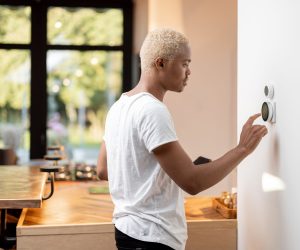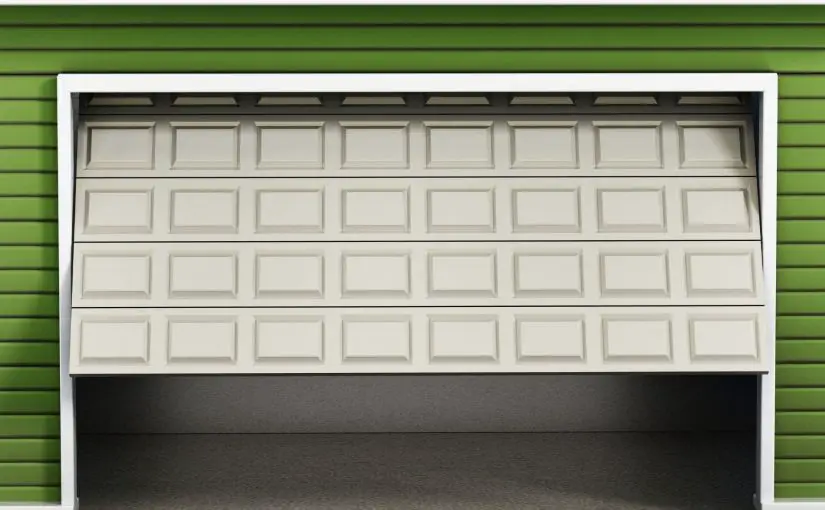As the weather starts to warm up, many of us turn to our window air conditioners to keep our homes cool and comfortable.
However, if you notice a musty smell coming from your air conditioner, it can quickly ruin the experience.
The good news is that removing the smell is easier than you might think.
In this article, we will explain how to remove the musty smell from your window air conditioner using a simple cleaning method.
How to Remove Musty Smell from Window Air Conditioner
The Cleaning Method
The cleaning method we will discuss involves using bleach and soap to clean the unit. Here are the steps you need to follow:
A. Use of Bleach and Soap
Create a solution of 1/2 cup of bleach and 1/2 cup of soap in a gallon of water.
B. Pump Sprayer to Spray the Solution
Pour the solution into a pump sprayer and spray it onto the aluminum fins of your air conditioner.
C. Warning about the Corrosiveness of Bleach
Be careful when handling bleach, as it is a corrosive substance. You may want to wear gloves and protective clothing.
D. Spray Solution onto Aluminum Fins
Spray the solution onto the aluminum fins of the air conditioner. The solution will help to kill any mold or bacteria that may be causing the musty smell.
E. Let it Sit for a Minute or Two
Allow the solution to sit for a minute or two to allow it to work.
F. Rinse the Solution off with Water
Using a garden hose or a spray bottle filled with water, rinse the solution off the aluminum fins. Be careful not to damage the fins with high-pressure water.
G. Be Careful not to Damage the Fins with High-Pressure Water
Make sure the water pressure is not too high, as it can damage the fins.
H. Keep Rinsing until all Bubbles Disappear
Rinse the air conditioner thoroughly until all bubbles disappear.
I. Thoroughly Rinse Every Drop of Bleach Out
Make sure to rinse every drop of bleach out of the air conditioner to avoid any potential damage.
III. Additional Tips
In addition to the cleaning method outlined above, here are some additional tips to help keep your air conditioner smelling fresh:
B. Use Expanding Foam to Insulate the Unit
Use expanding foam to insulate the unit and prevent moisture from getting inside.
C. Be Cautious of Getting Bleach on Skin
Be cautious when handling bleach and avoid getting it on your skin.
D. Reminder that not all Air Conditioners may have a Stinky Smell
Finally, it is worth noting that not all air conditioners may have a stinky smell.
If you have tried the cleaning method above and the smell persists, it may be a sign of a more serious problem. In this case, it is best to contact a professional to inspect your air conditioner.
 Conclusion: How to Remove Musty Smell from Window Air Conditioner?
Conclusion: How to Remove Musty Smell from Window Air Conditioner?
Removing the musty smell from your window air conditioner is a simple process that can be done using bleach and soap.
By following the steps outlined above, you can keep your air conditioner smelling fresh and clean all summer long.
Just be sure to follow the proper precautions when handling bleach and other chemicals, and remember to rinse the unit thoroughly to avoid any potential damage.
Black Mold in Window Air Conditioner
Black mold is a type of mold that can grow in window air conditioners and can cause a variety of health issues. It is important to identify and remove black mold as soon as possible to prevent it from spreading and causing further damage.
Identifying Black Mold in Window Air Conditioners
Black mold is often characterized by its dark, greenish-black color and musty odor.
It thrives in damp and humid environments, making window air conditioners a prime location for growth.
In addition to its appearance and odor, black mold can cause a variety of health problems including respiratory issues, allergies, and skin irritation.
It is important to identify and remove black mold as soon as possible to prevent these health issues from developing.
Removing Black Mold from Window Air Conditioners
Removing black mold from window air conditioners can be a difficult and time-consuming process, but it is necessary for the health and safety of those using the unit.
Here are some steps to follow:
1.Turn off the power to the air conditioner and unplug it.
2.Wear protective gloves and a mask to prevent inhalation of mold spores.
3.Remove any loose debris or dirt from the air conditioner using a vacuum cleaner or soft-bristled brush.
4. Mix a solution of equal parts water and bleach.
5.Use a pump sprayer to apply the bleach solution to the affected areas of the air conditioner. Be sure to avoid spraying the solution on any electrical components or wiring.
6.Allow the solution to sit for several minutes to kill the mold.
7.Use a soft-bristled brush to scrub away the mold, being careful not to damage the fins or other components of the air conditioner.
8. Rinse the solution off with water, being careful not to use too much water pressure and damage the fins.
9.Thoroughly dry the air conditioner before using it again.
Preventing Black Mold in Window Air Conditioners
Prevention is key when it comes to black mold in window air conditioners.
Here are some tips to help prevent black mold growth:
1.Clean your air conditioner regularly, at least once a year, or more often if you notice a musty smell or signs of mold.
2.Use a dehumidifier in the room where the air conditioner is located to reduce humidity and moisture in the air.
3.Keep the area around the air conditioner clean and free of debris or clutter.
4.Insulate the air conditioner with expanding foam to prevent moisture from getting inside.
5.Replace the air filter in your air conditioner regularly to prevent mold and bacteria buildup.
Conclusion
Black mold in window air conditioners can be a serious problem that can lead to a variety of health issues.
It is important to identify and remove black mold as soon as possible to prevent it from spreading and causing further damage.
Regular cleaning and maintenance of your air conditioner can help prevent black mold growth and keep your home safe and healthy.
If you suspect a more serious problem, it is best to contact a professional for assistance.
 FAQ:
FAQ:
1.Why do window air conditioners get mold?
Window air conditioners can develop mold if they are not cleaned regularly or if they are not installed properly. Moisture can build up inside the unit, creating a breeding ground for mold and bacteria.
2. How can I prevent mold from growing in my window air conditioner?
To prevent mold growth in your window air conditioner, it is important to clean the unit regularly. You can also use expanding foam to insulate the unit and prevent moisture from getting inside.
3. What kinds of mold are typical in window air conditioners?
Various types of mold can grow in window air conditioners, including black mold, green mold, and white mold. All of these molds can cause respiratory problems and other health issues.
4. How can I identify black mold in my window air conditioner?
Black mold is a type of mold that is dark in color and has a musty smell. It can cause respiratory problems, including coughing, sneezing, and wheezing.
If you suspect that your window air conditioner has black mold, it is best to contact a professional to inspect the unit.
5. How often should I clean my window air conditioner?
It is recommended to clean your window air conditioner at least once a year, ideally before the start of the cooling season.
If you notice any signs of mold or musty smells, you should clean the unit immediately.
6. Can I use other cleaning solutions instead of bleach and soap?
Yes, there are other cleaning solutions you can use to clean your window air conditioner.
For example, you can use vinegar and water or a commercial air conditioner cleaner. Just make sure to follow the manufacturer’s instructions carefully.
7. How long does it take to clean a window air conditioner?
The cleaning process can take anywhere from 30 minutes to an hour, depending on the size of the unit and the amount of mold and dirt buildup.
8. Can I clean my window air conditioner myself or should I hire a professional?
You can clean your window air conditioner yourself if you follow the proper safety precautions and use the right cleaning solutions.
However, if you are not comfortable doing it yourself or if you suspect a more serious problem, it is best to contact a professional.
9. Can mold in a window air conditioner affect my health?
Yes, mold in a window air conditioner can cause respiratory problems, including coughing, wheezing, and asthma attacks. It can also worsen existing health conditions and cause allergic reactions.
10. How can I maintain my window air conditioner to prevent mold growth?
In addition to cleaning the unit regularly, you can also use a dehumidifier to reduce moisture in the air.
Make sure to also replace the air filter in your window air conditioner regularly to prevent mold and bacteria buildup.













 What’s the Best Air Purifier for Sinuses?
What’s the Best Air Purifier for Sinuses?

 Best Locations for Air Purifiers to Relieve Sinus Issues
Best Locations for Air Purifiers to Relieve Sinus Issues












